These gardeners must raise $2M to save their P-Patch
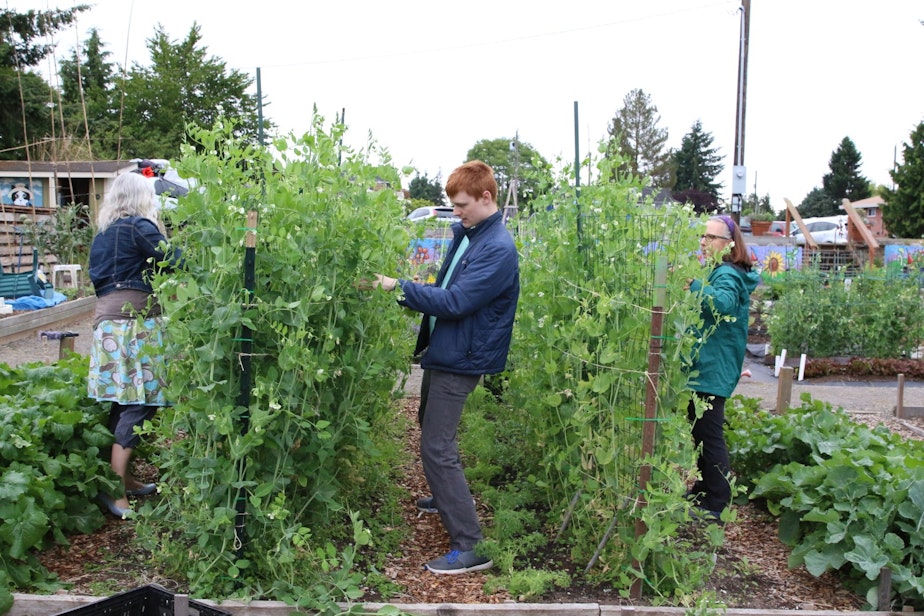
Here's why they think they'll succeed.
There’s something special about an old community garden. Gardeners have built up the soil for years and flowers have dropped so many seeds over the seasons that by late spring, there’s beauty bursting from every nook and cranny.
At half an acre, the Ballard P-patch is one of the biggest in the city.
“We try to make the garden available for everybody, not just the people who have plots here, but for it for the entire community,” said gardener Cindy Krueger as she gave me a tour.
She points out garden gnomes, a little lending library, and tables and benches hidden among the plants, “so that people can have a cup of coffee in the garden, read a book, whatever," she said.
"You’ll see other areas like that throughout the garden.”
The gardeners grow food for themselves, but they also grow lots of food for others, too.
“It’s really nice for people at the food bank to be able to get fresh delicious, organic produce,” Mary Jean Gilman told me as she staked up cucumbers in the "giving garden" plots. And last year, there was a lot of it: 1,300 pounds harvested and sent to the food bank.
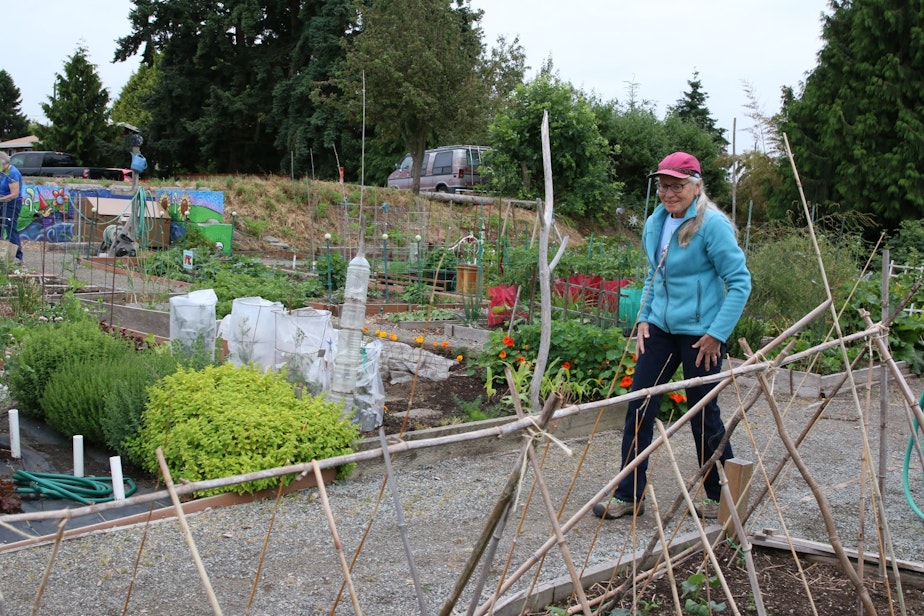
Sponsored
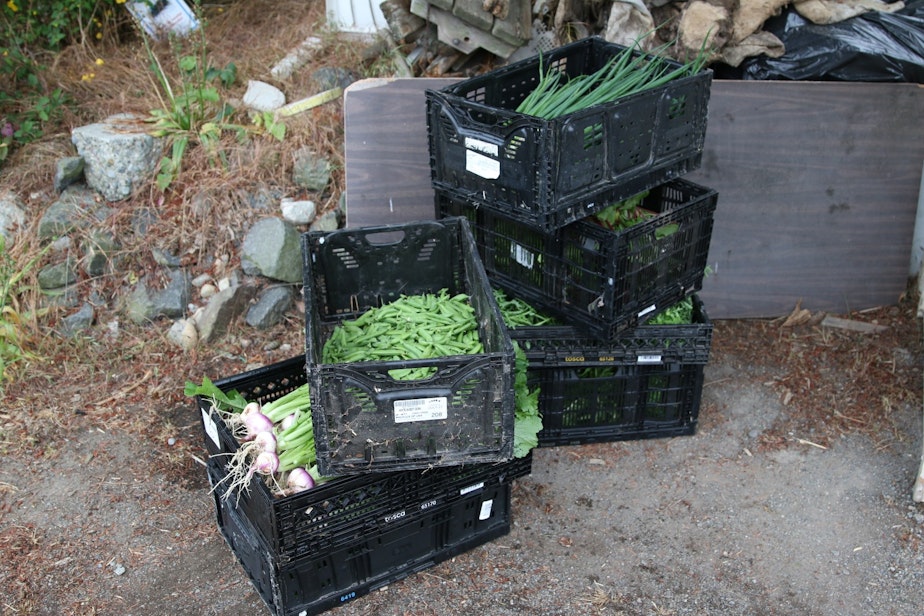
For 43 years, this garden has sat on this property owned by Our Redeemer’s Lutheran Church on NW 85th Street. The church rented the land to the city – for just one dollar a year. But that must end soon, because the church needs money for seismic upgrades, more money than it can raise.
“We have unreinforced masonry in our sanctuary," said Pastor Kathy Hawkes, "so if there were a quake, it would not be a good thing.”
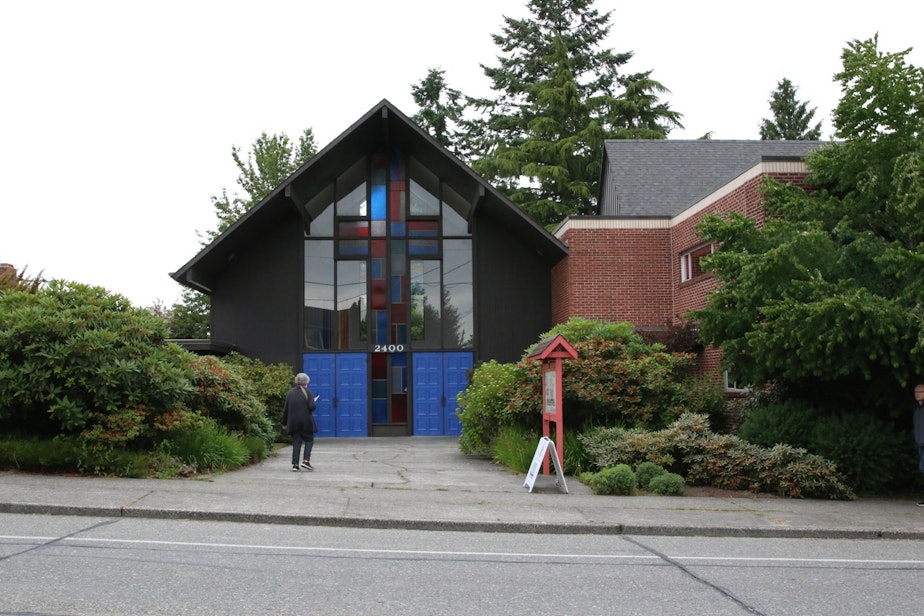
Sponsored
But the church isn’t just selling to the highest bidder. The congregation offered the land first to the 85 gardeners at this P-Patch.
To buy it, they must raise about $2 million.
“If each gardener were to contribute a percentage of that, how much would each gardener have to contribute?” I asked.
“I’ve never done that math because I know it’s not possible,” Krueger told me.
I did the math - that’d be $23,000 from each gardener, many of whom are retirees on fixed incomes.
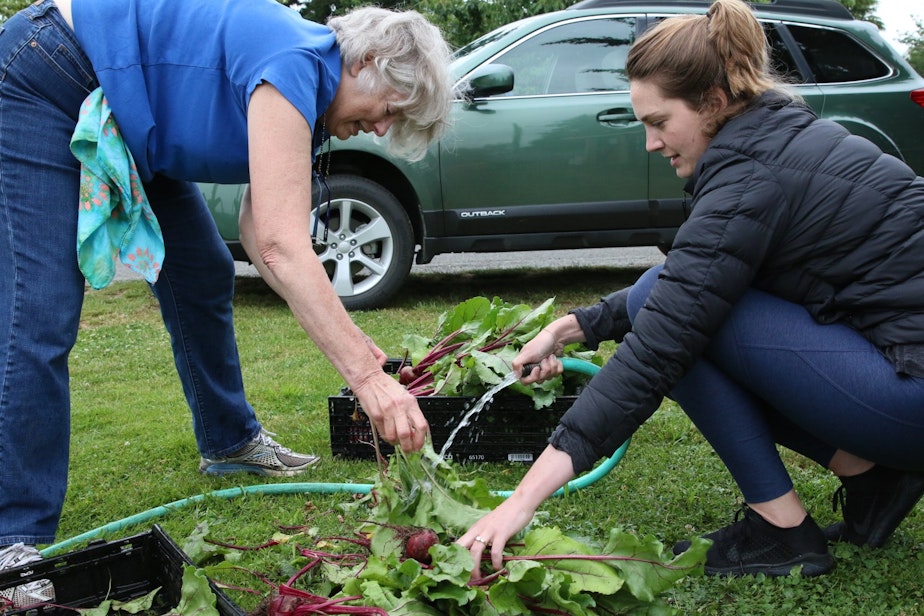
Michelle Blume is with Grow, a land trust run by volunteers that works to preserve community gardens in Seattle. Grow would be the owner of the land, if the gardeners manage to raise the money to buy it.
Blume said the P-Patches that are on private land (about 9 of the 90 gardens in the City of Seattle program) have survived the recent development cycle in Seattle so far because they had nice landlords.
Now, the protection they’ve enjoyed is starting to crack. Blume said there are development rumors swirling around half a dozen of them. “We feel like it’s starting to ramp up now, with the pressure for development,” she said, because there’s not enough land for housing.
Sponsored
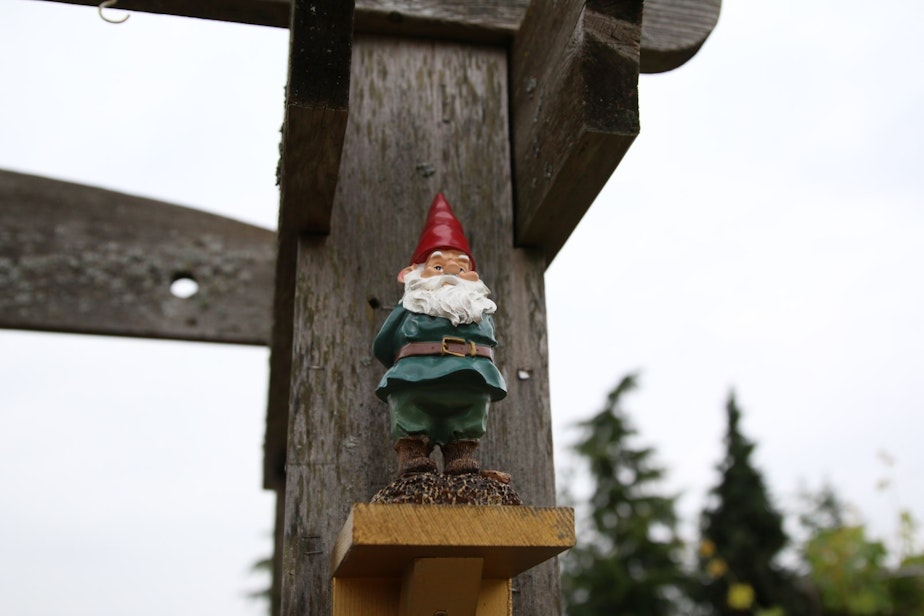
For Blume, that would be a definite loss. “If we want Seattle to be able to continue to be a livable city, we have to be able to maintain our open spaces, our gardens, our green spaces.”
But there’s likely to be a happy ending for this Ballard P-patch, because the church congregation has given the gardeners time to raise the money. And the gardeners say they have a good shot at getting some money from King County, which has open space funds. And then there’s the fact that the church wants the garden to succeed.
Sponsored
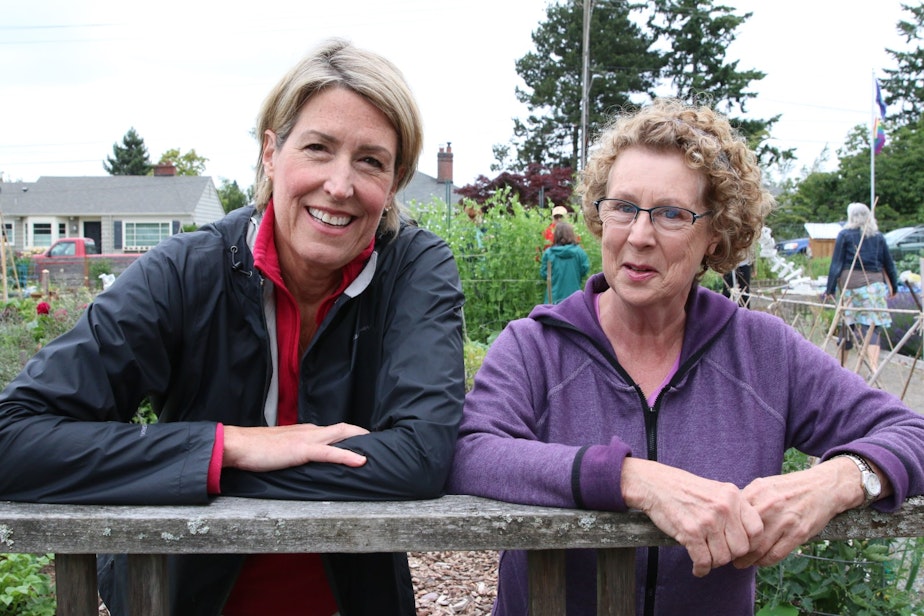
When Pastor Kathy Hawkes sees Cindy Krueger in the garden, they actually hug each other. “I think the surprise and the learning for me... is that we know one another better and are closer as a result of this,” Pastor Hawkes told me.
"As a result of having to sell this land?" I asked, just to make sure I heard correctly.
"Yeah," She confirmed, Krueger nodding along with her.
"Well, of having the conversations, right?" offered Krueger. "And learning about what your mission is," she said, gesturing to Hawkes. "And you're learning about what we're doing."




